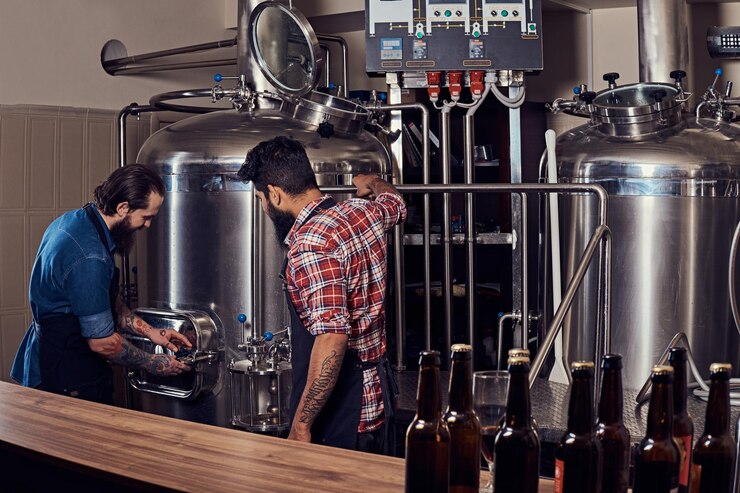As environmental consciousness continues to grow, the craft beer industry is embracing sustainability as a core principle in brewing practices. From reducing water usage and energy consumption to implementing waste reduction strategies and sourcing local ingredients, breweries are pioneering innovative techniques to minimize their environmental footprint while still producing delicious and high-quality beer. Read More
Water is a precious resource, and breweries are increasingly focused on reducing water usage throughout the brewing process. By implementing water-saving technologies, such as closed-loop systems and water recycling systems, breweries can significantly reduce their water consumption and minimize wastewater discharge. Additionally, breweries are exploring alternative sources of water, such as rainwater harvesting and greywater recycling, to further mitigate their environmental impact. Breweries are also prioritizing energy efficiency and exploring renewable energy sources to power their operations. From upgrading to energy-efficient equipment and lighting to investing in solar panels and wind turbines, breweries are reducing their reliance on fossil fuels and lowering their carbon emissions. By harnessing the power of renewable energy, breweries can reduce their environmental footprint and contribute to a more sustainable future. Waste reduction is a key focus area for sustainable breweries, as the brewing process generates significant byproducts and waste streams. Breweries are implementing innovative waste reduction strategies, such as composting spent grains, recycling wastewater, and repurposing brewery waste for animal feed or biofuel production. By minimizing waste and maximizing resource efficiency, breweries can reduce their environmental impact and create a closed-loop system that promotes sustainability. Breweries are increasingly prioritizing the use of local and organic ingredients in their beer recipes. By sourcing ingredients from local farmers and producers, breweries can reduce their carbon footprint associated with transportation and support local economies. Additionally, breweries are choosing organic ingredients to minimize exposure to pesticides and synthetic fertilizers, promoting biodiversity and soil health. Sustainable breweries are actively engaging with their communities to raise awareness about environmental issues and promote sustainable living practices. Through educational events, brewery tours, and community outreach programs, breweries are empowering consumers to make informed choices and take action to reduce their environmental impact. By fostering a sense of environmental stewardship and responsibility, breweries are inspiring positive change and building stronger, more resilient communities. Many breweries are seeking certification from organizations like the Brewers Association’s Sustainability Benchmarking Tool or the U.S. Green Building Council’s LEED program to demonstrate their commitment to sustainability and accountability. By achieving certification, breweries can showcase their environmental performance and differentiate themselves as leaders in sustainable brewing practices. Additionally, breweries are participating in sustainability awards and competitions to gain recognition for their efforts and inspire others to follow suit. Sustainable brewing is an ongoing journey of continuous improvement and innovation. Breweries are constantly exploring new technologies, techniques, and initiatives to further reduce their environmental footprint and enhance their sustainability practices. By embracing a culture of innovation and collaboration, breweries can drive positive change in the craft beer industry and contribute to a more sustainable future for generations to come.1. Water Conservation and Management
2. Energy Efficiency and Renewable Energy
3. Waste Reduction and Recycling
4. Sourcing Local and Organic Ingredients
5. Community Engagement and Education
6. Certification and Recognition
7. Continuous Improvement and Innovation
In conclusion, sustainable brewing practices are essential for the long-term viability and success of the craft beer industry. By prioritizing water conservation, energy efficiency, waste reduction, and community engagement, breweries can minimize their environmental footprint while still producing delicious and high-quality beer. Through innovation, education, and collaboration, breweries can lead the way towards a more sustainable and resilient brewing industry that benefits both people and the planet.

Sustainable Brewing Practices: Navigating Eco-friendly Solutions In The Craft Beer Industry
As environmental consciousness continues to grow, the craft beer industry is embracing sustainability as a core principle in brewing practices. From reducing water usage and energy consumption to implementing waste reduction strategies and sourcing local ingredients, breweries are pioneering innovative techniques to minimize their environmental footprint while still producing delicious and high-quality beer. Read More
